We have two blog entries today, both from doctoral students in Classics: in the first, Peter Davies, reflects on the legacy of the poet Simonides’ words in commemorating the fallen…
November 11, 2014
After the battle of Thermopylae – immortalised by Herodotus and, in our own time, given new fame by Snyder’s epic 300 – the Lyric poet Simonides wrote an encomium for the Greek dead. In 1838 John Sterling would translate some of his words thus: Of those who at Thermopylae were slain, Glorious the doom, and …
On this day, November 8th, in AD 30, Marcus Cocceius Nerva was born.
November 8, 2014
As part of the Nottingham Anniversaries through Coins project, Mike Welbourne offers some thoughts on Nerva, Rome’s twelfth emperor, on the anniversary of his birth. According to Aurelius Victor (Epitome de Caesaribus, 12.1) Nerva was born in the Italian town of Narnia. On his father’s side he came from a family that had been intimately …
Enjoying Receptions of Athenian Tragedy
November 2, 2014
Larissa Ransom, who is studying for an MA in Classical Literature, has recently seen Pilot Theatre’s Antigone, National Theatre Live’s Medea and Broadway Theatre Archive’s Antigone. Here she muses on how this has changed her thinking about Greek tragedy… It is commonly believed that much of a book is lost when turned into a …
Why Latin is Not a Dead Language
October 26, 2014
Juliet O’Brien, a first-year student studying Ancient History and History at the University of Nottingham, explains why she thinks Latin still lives! Latin is dead. Its decline has caused it painlessly to pass away in its sleep. It has been laid to rest in a stately marble tomb. RIP. Rubbish! Latin still breathes. As …
A Herculean Achievement: The Twelve Labours of… Vladimir Putin
October 12, 2014
Esther Eidinow reports on an intriguing use of ancient Greek myth… Herakles, Hercules, Melqart… Putin: a celebration of the Russian leader’s achievements put Greek myth back on the map last week. An exhibition of pictures, organised by a Facebook group of Putin’s supporters, showed the President engaged in Herakles’ different tasks—each repurposed to represent a …
‘Pitying Oedipus’
October 5, 2014
In our first Classics research workshop (also a Classical Association Lecture), Professor Patrick Finglass spoke on ‘Pitying Oedipus’; Professor Alan Sommerstein was inspired to offer this response… Professor Patrick Finglass kicked off the new semester on Tuesday 30 September with a talk in his usual sparkling style to the Nottingham branch of the Classical Association …
Thinking about Thinking about Ancient Greek Religion (2)
August 31, 2014
In January 2014, the Ancient Religions and Cognition (ARCog) project held its second workshop: on Transmission. Esther Eidinow gives an overview of the meeting, during which participants explored the theme of religious transmission using cognitive theorizing to think about ancient evidence, and vice versa. You can find out more about the project and the workshop, …
Holiday photos: late antiquity on the Adriatic (1)
August 20, 2014
In between research and other duties, I have taken a welcome week of holiday in Friuli (NE Italy, close to the border with Slovenia) and at Poreč on the peninsula of Istria, at the Western end of Croatia. My partner and I didn’t choose these destinations for any classics-related reason: the former is where her …
Classical festivities in Edinburgh: A handy list
August 6, 2014
Lynn Fotheringham asks what’s on at the Edinburgh Festival this year and finds many interesting classical productions. For many years now my theatre-going has tended to focus on the Classics-related – not just performances of Greek drama; over my fifteen years in Nottingham, I remember Heaney’s Burial at Thebes and Berkoff’s Oedipus at the Playhouse, …
Classics and the First World War: ‘Stand in the trench, Achilles’
July 13, 2014
A hundred years since the summer of 1914: people’s minds are turning to the First World War. I thought it might be of interest to spend a little time here drawing attention to some of the various ways in which this war was experienced, described and commemorated in connection with Classics. This poem was composed …

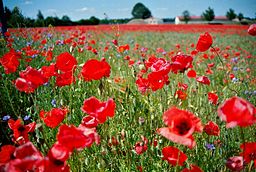
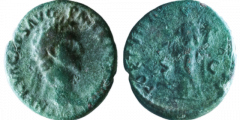
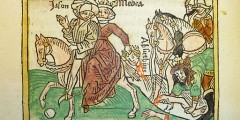

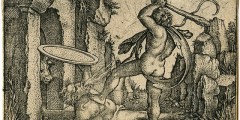
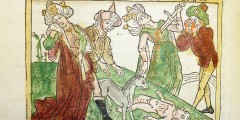
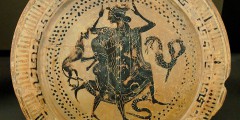
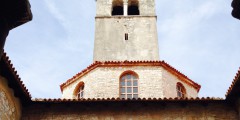
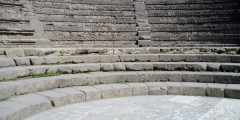
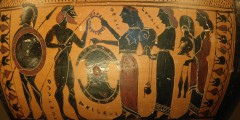
Recent Comments